What will the church be like after the Midnight Cry?
The words “revival” and “awakening” are often used interchangeably. Since this is partly a matter of semantics, we should not press the distinction too far. But one might argue that revival refers to Christians being revived and that awakening refers to the community outside the church being shaken.
Yet sometimes the church itself needs to be awakened, and that is what the parable of the 10 virgins is partly about. The 10 virgins refer to the church. But as the bride is not mentioned in the parable of the 10 virgins, we must remember the principle that a parable does not stand evenly on all four legs.
The church is depicted as a bride in at least four places in the New Testament. John the Baptist may have been the first to teach this in John 3:29. Paul brings it up in Ephesians 5:25-32 and 2 Corinthians 11:2. By the time John records these words, “For the marriage of the Lamb has come, and His wife has made herself ready” (Rev. 19:7), it is clear that the church is to be seen as Christ’s bride. But Jesus is still physically at the right hand of God when this happens.
And yet the wedding itself, though it is at hand, does not take place yet. The bride is “ready.” This means the church has at long last become what God wanted it to be—pure like a virgin. The actual wedding takes place later in God’s scheme (Rev. 21:1-4).
The point here is this: Although the church has been asleep and part of the church is described as foolish virgins, the wise virgins who are invited to the wedding banquet fulfill the ultimate purpose of God regarding the church. The wise virgins—namely those who were “ready” (Matt. 25:10)—demonstrate the kind of church God has willed.
Why the World Does Not Respect the Church
When the church is revived, Christians will become more like what they ought to have been all along. When the church is what it ought to be, the world will begin to respect the church. Sadly, the world does not respect the church.
Mary Queen of Scots reportedly said she feared the prayers of John Knox more than all the armies of Europe. But who respects the church today? Virtually no one. The world laughs at us. No one is afraid of us. Typical Christian television is all about money, feeling good and “What’s in it for me?” There is virtually no fear of God.
The Midnight Cry will result in an immediate fear of God—in the church and the world.
But should the world be afraid of the church? Yes. The world should be very respectful of it. In the earliest church, those outside it stepped to one side with deepest respect when the believers in Christ were around. The early church met in Solomon’s Porch, part of the ancient temple. “No one else dared join them, but the people respected them” (Acts 5:13). This means that the nonbelieving Jews knew their place when around these believers. They showed a very deep respect for those who believed that Jesus was the Messiah. Why? It is because a fear of God settled on all. An awakened church will gain the world’s respect for it. When Jacob, having been in a backslidden state, got right with God, “the terror of God was on the cities that were around them, and they did not pursue the sons of Jacob” (Gen. 35:5).
In our parable, the foolish and wise virgins were all awakened. After the middle-of-the-night cry “all those virgins rose and trimmed their lamps” (Matt. 25:7). The cry indicated that the Bridegroom’s coming was finally at hand. And all believed it. One of the most extraordinary things about the Midnight Cry will be that the entire church throughout the world will be convinced that the coming of Jesus is truly at hand. The church’s awakening will spill over into communities outside the church.
Evangelism will have top priority. Instead of endless introspection and Christians chasing after a “feel good” state of mind, the church will turn to the lost outside it. What will impel the church to evangelize will be the consciousness of God’s coming judgment on unbelievers.
Matthew 25:8-9 tells us an animated conversation followed between the foolish and the wise virgins. This is partly because the Second Coming of Jesus—Jesus leaving His throne at the right hand of God—was at hand but had not yet arrived. It was a time for the church to get ready for the Second Coming and for those outside the church to get ready for it. The message will be that the Bridegroom’s coming is at hand indeed, but there is still a degree of time. For one thing, the wise would repent of being asleep. And although it was too late, the foolish would plead with the wise for spiritual help.
Picture this. Those in the church who had been on the periphery of the life of the church suddenly pleading tearfully with the faithful: “Pray for us. Please pray for us.” The reply will be: “We wish we could help. We have barely enough grace for ourselves.”
But foolish virgins will not only be comprised of those on the periphery; it will include those thought to be stalwarts! People like this become smug and, sadly, out of touch with communion of the Spirit. They too will be among those who plead with the wise, “Give us some of your oil.” But it will be too late.
The door will be shut. There is no way that the foolish virgins can have a part in this great revival. This is one of the ways “weeping and gnashing of teeth” can be applied to those in the church. They will realize what they have missed.
In the meantime, the Bridegroom will come. We will see further below that the coming of the Bridegroom initially means the coming of the Spirit in power. The wise virgins—those who are “ready”—will go into the wedding banquet. The foolish virgins will appeal to the doorkeeper for entrance into the celebration. “Open the door for us!” they will plead. “I do not know you,” the doorkeeper will tell them (Matt. 25:11-12).
10 Signs of an Awakened Church
The gospel restored: It makes perfect sense that the book of Romans, and especially Romans 4, will be the key to this great move of the Holy Spirit. Romans was the key New Testament book in the time of the Protestant Reformation. Romans 4 is Paul’s expounding of justification by faith alone—the central teaching of the Reformation. The world was turned upside down by this teaching.
The same exact message is what led to John Wesley’s conversion—when his heart was “strangely warmed” at Aldersgate Street in London in 1738. This led him to preach it all over England for the next generation. It was the message of Jonathan Edwards in Northampton, Massachusetts, that led to the Great Awakening in New England. The same gospel of Paul, Luther, Edwards and Wesley will be revived and upheld with an unashamed command for people everywhere to be saved by faith in the blood of Christ propitiating the justice of God the Father, and there will be a return to the preaching of the eternal wrath of God.
Holiness: Holy living—a care to please God by financial integrity, sexual purity, a demonstration of the fruit of the Holy Spirit and a desire to glorify God in the whole of one’s life—will become the norm. This will mean a restoration of Christian marriage between a man and a woman—and couples living in faithfulness to one another. People living in homosexual practice will be convicted by the Holy Spirit that they are in sin and will volunteer to honor the clear teaching of Holy Scripture. A return to unfeigned care for the family will be widespread throughout the world. The fruit of the Spirit—love, joy, peace, patience, goodness, gentleness, faith, meekness and self-control—will be sought after for Christian character.
We do things in our sleep we would not do when awake. When the church is awakened by the Midnight Cry, there will be deep repentance in the church all over the world for the way we have lived—as if in a dreamlike state. We will be shocked over the kind of lives we lived and how we tolerated the things that no longer gave us a sense of outrage.
Priority of family life: Possibly the saddest fact of our generation is the utter disintegration of the family unit. Fathers in particular have abdicated their parental responsibility in America and Britain. The result is unprecedented numbers of single parents—mostly mothers—having to bring up their children. Many children growing up today have no relationship with their fathers. This is a recipe for lack of sexual identity later in life. Some have no idea who their fathers are because sometimes mothers are not sure. But there will be a great sense of repentance coming to parents after the Midnight Cry, restoring families and bringing dads home to love their children (Mal. 4:5-6; Luke 1:17).
The return of millions of young people to the church: The generation gap that has developed so sharply in the last 50 years in the church—resulting in more and more young people leaving it—will close more and more as a result of the Midnight Cry and the spiritual coming of Jesus. The restoration of parents and children means not only a return to focus on the family, but also the return of young people to the church.
We have been losing countless numbers of young people in recent years. The main reason for the loss of young people is that they do not see the Christian message as relevant or true. The Midnight Cry will change that overnight. Many young people—teenagers and those in their 20s and 30s—will flock to the church in anxiety, desperation and heart-searching. The spiritual coming of Jesus will fill the need.
The working class and ordinary people leading the way in number of people converted: Dr. Martyn Lloyd-Jones used to say to me, “Christianity has not touched the working class in Britain.” Those words gave me pause. He is so right. When I was at Westminster Chapel, we tried to reach all classes of people but had only modest success. It was the middle class who came to the chapel by and large. The same is true in America. Whether it be Southern Baptists, Presbyterians or Pentecostals, Christianity has appealed largely to the middle class. And yet in the New Testament it is said of Jesus: “The common people heard him gladly” (Mark 12:37, KJV).
Not only that, but Paul also made it painfully clear that God’s elect are largely chosen from ordinary people (1 Cor. 1:26-28). The next great move of God will reach the poor, the rejected, the homeless, the uneducated and the jobless. No one will feel left out. Because Jesus left no one out.
Concern for the poor and the “underdog”: Evangelicals’ uneasy conscience for neglecting the “poor” of James 2:6, for example, will lead the church to show their faith by “good works”—not merely saying “God bless you” but by active involvement for hurting people (vv. 14-17). An awakened church will no longer sweep the dirt under the carpet by showing disdain for the underprivileged and the unemployed but will show compassion not unlike that of the William Booths of this world. This will be a part of the bride making herself ready.
Evangelism: I do not anticipate organized mass evangelistic campaigns but rather many Christians doing the work of an evangelist. Although we will need the leadership of high-profile evangelists, I predict that there will be few superstars. I expect the evangelism to be spontaneous, as it was when Philip approached the Ethiopian (Acts 8:26-36) or when Peter took advantage of the platform provided by the healing of the man by the gate of the temple called Beautiful (Acts 3:1-20).
This is to say nothing of the power of the Holy Spirit falling all over the church throughout the world at the onset of the Midnight Cry—with countless people being saved because they cry out to God in Jesus’ name. Muslims will be open to the gospel. Thousands of people—including imams—who have had dreams that Jesus was the Son of God and died on a cross will surface and openly turn to Jesus Christ. Truly, the glory of the Lord will cover the earth as the waters cover the sea. Indeed, the angel Gabriel stated that John the Baptist would bring many of the people of Israel back to the Lord their God (Luke 1:16). Do not forget: The Midnight Cry will result in a John-the-Baptist ministry to the church.
Church unity: The first Pentecost came when the disciples were of one accord (Acts 2:1). This was without doubt an essential ingredient in the initial coming of the Spirit to the church. Jesus prayed for church unity in John 17:21, that the church may be “one.” This too will be a vital factor in the bride making herself ready for the coming of the Lord.
The Midnight Cry will bring about true fellowship with all Christians. Instead of a prevalence of suspicion toward those who don’t see eye to eye with us, there will be a love for one another—an overlooking of nonessentials. The coming movement of the Spirit will bring a beautiful church unity—a great part of the bride making herself ready.
Signs and wonders: Apart from multitudinous conversions, many people will be healed. Signs and wonders—including people like Ananias and Sapphira being struck dead (Acts 5:1-11)—can be expected after the Midnight Cry. The fact of holiness generally being the norm in the church would not mean that anyone is sinless. But I fully expect the blind to be healed, even hospitals sometimes to be emptied and the dead to be raised—just to demonstrate the power of the ascended Christ before He makes all His enemies His footstool.
Many backsliders restored: A vital part of the John-the-Baptist ministry was that he would “turn many of the sons of Israel to the Lord their God” (Luke 1:16). This verse in Luke could mean more than one thing. First, in the original context it would refer to those within Israel—the household of faith—who are backslidden but get restored. This no doubt happened when John preached “repentance” (Luke 3:8). Thousands came back to a right relationship with God through John’s ministry.
Second, I would anticipate this to happen in the coming awakening. There are many who made professions of faith but deserted the church. A John-the-Baptist ministry will touch people like that. Many backsliders will return to the church.
If someone asks, “Why cannot this apply to the foolish virgins? Were they not backsliders too?” I reply: the foolish virgins were in a category that describes those who could not be restored to repentance, as in Hebrews 6:4-6. It is not easy to draw the line between foolish virgins in the church who cannot be restored and backsliders in the world who may be restored.
I would only suggest that the foolish virgins were not like those who had not gone back into the world but were like the Laodiceans—smug, who “have need of nothing” (Rev. 3:17). Jesus said there were prostitutes who believed John the Baptist, and people like them enter the kingdom of God before Pharisees (Matt. 21:31-32). The foolish virgins were more like Pharisees—self-righteous, judgmental and unteachable—that is, until it was too late for them.
Third, as John the Baptist brought many “of the people of Israel” back to the Lord, so would the Midnight Cry do this for modern Israel. This would mean Jews today—anywhere in the world. The coming revival will result in the lifting of the blindness in Israel, as we have seen. Therefore the John-the-Baptist-type of ministry that precedes the physical Second Coming of Jesus will play a huge part in the restoration of Israel in the very last days.
R.T. Kendall was the pastor of Westminster Chapel in London, England, for 25 years. Born in Ashland, Kentucky, he was educated at Southern Baptist Theological Seminary (M.Div.) and Oxford University (D.Phil.). Kendall is the author of more than 60 books.
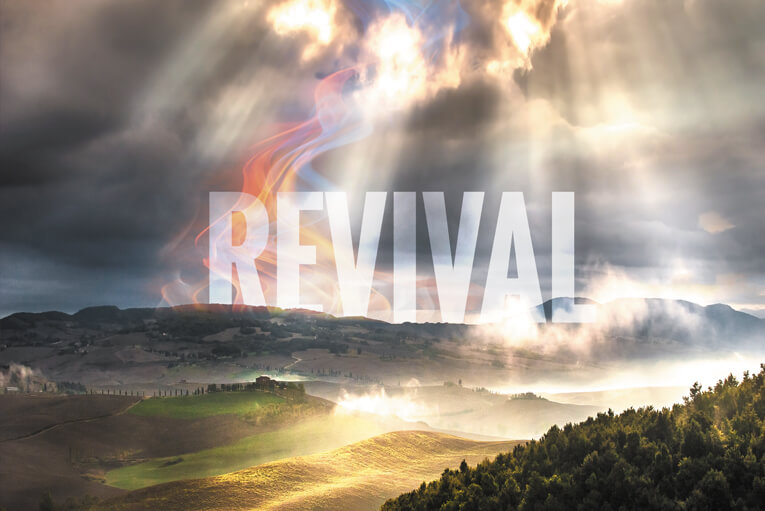



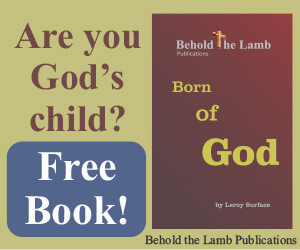
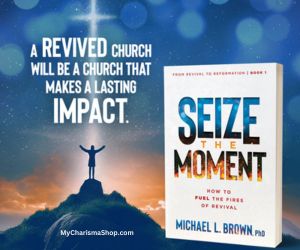
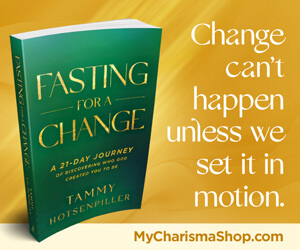
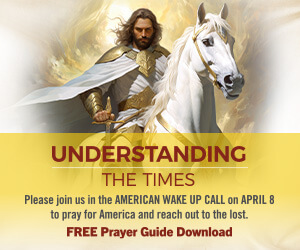


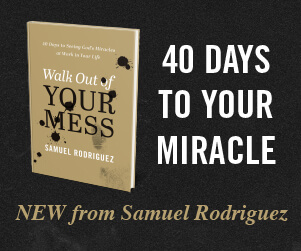
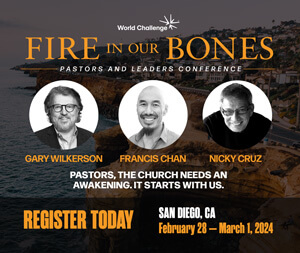
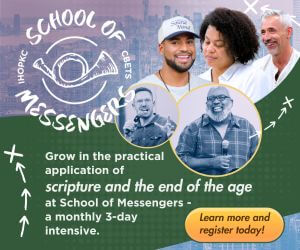



Leave a Reply
You must be logged in to post a comment.